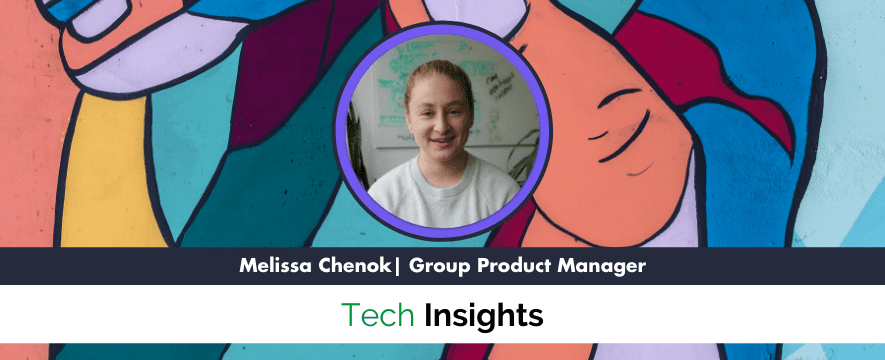Not all startups are created equal.
That’s obvious.
But finding your perfect match – the startup stage that’s just right for you – that’s not so obvious.
After all, the term “startup” could refer to a 4 person pre-seed company or a 600-person company going through a series D round of funding.
So how do you determine the right startup environment for yourself?
We interviewed engineering and product leaders with years of experience navigating the startup landscape. Their advice points to five questions that will help you assess the different startup stages and figure out what stage is right for you.
1. How much structure do I need?
It depends.
Do you thrive when driving your own schedule?
Or do you prefer a manager coming up with your tasks for the week?
Typically, if you join an earlier stage startup, there’s less structure in your position. Simply because the company is still establishing itself.
That means you’ll need to take responsibility by finding answers to your questions, facilitating your learning process, and managing your day-to-day schedule.
No one will be hovering over you, so you’ll need to take initiative when you need help.
Rob Liebowitz, Senior Software Engineer, at Morning Consult explains, “When you start at an engineering company that’s super small, you’ll need to be ready to set up the infrastructure and resources for the very first time. You’ll have a lot of autonomy.”
Edwin Miller, Chief Product Officer at Sitka, shares that engineers at this stage need to be comfortable with ambiguity and discovery. He explains, “You have to understand the big picture: what problem you’re trying to solve and what metrics define success.”
On the other hand, a later-stage startup will likely offer more predictability and the chance to help the startup scale and grow. It’s also likely that you’ll establish the company’s methods and processes (think: code review guidelines and documentation requirements).
As Edwin describes, “You’ll need to develop and document processes and have traceability of what you’re doing.”
He continues, “Startups that are at a later stage want to keep moving and scaling. They’ll want to invest time into automation or repeatability scripting containers so that everything they do today allows the team to move faster down the road.”
Things to consider:
- Are you flexible and comfortable with surprises or do you need to know exactly what the day will bring?
- Are you looking to set up systems and establish a foundation or do you want to improve processes that have already been formed?
- Do you want clear guidance or do you prefer to form your own path?
2. What size engineering department do I want to be part of?
If you join an earlier stage startup with a relatively small engineering team, you’ll learn about the whole scope of the business and will probably end up doing a little bit of everything.
You’ll also spend less time on synchronization and task management since all the engineers communicate on a regular basis.
On the other hand, if you join a startup with a larger engineering department, you’ll have access to more resources, including people.
People who can share ideas, help develop your skills, and provide mentorship.
You’ll also end up specializing in areas of your work since you don’t have to wear as many hats.
Rob explains, “At a bigger company, it’s important to understand how to coordinate with a team, interact with other people, and navigate your organization as a whole.”
Things to consider:
- Do you want to know what’s going on in the entire engineering team or are you happy with focusing on one piece of the puzzle?
- Does the idea of having to network within a large engineering department sound exciting or intimidating?
3. What stage product do I like to work on?
“If you join a startup before product market fit, you’re in a battle to prove that the company should exist. That means wearing a lot of hats, shipping quickly, and, if you’re doing it right, talking with your customers constantly. And that battle often means that you look back at the code you wrote and the way you wrote it with plenty of hindsight. So the question from my perspective really is, what battle do you enjoy more? Are you interested in proving to the world that your idea deserves to exist? Or are you interested in building the infrastructure to support it?” – Leo Hentschker, CTO at Column
When a company’s product is in early stages you will likely have to ship an MVP and adapt quickly based on customer feedback.
Startup engineering leader, Rami Chowdhury, elaborates that in this setting teams “tend to own the product from end to end. You need to have a vested interest in [the product] and a desire to see it come to fruition.”
Bonus: For advice during this stage of product development, Josh Tong breaks down how to lead an engineering team while building with uncertainty.
On the other hand, joining a company with an established product provides completely different opportunities.
You’ll be responsible for inheriting a product and scaling it. That involves continuing to collect customer feedback, improving the product, adding new features, and scaling the user base.
When working with a later-stage product, you’ll need to pay close attention to details and will make small changes that have a huge impact on the product’s ability to scale.
Things to consider:
- Do you get excited about creating a new product or do you love the idea of improving a product that already exists?
- Do you enjoy the rush of rapidly iterating and finding product-market fit or do you prefer the stability of a product that’s already been accepted by the market?
- If the product is still in early stages, do you truly believe in it and have a desire to get it out to the world?
Bonus: Rosemary King, an experienced product manager in the startup space, has identified two types of product people – builders and optimizers, a helpful resource if you want to figure out what product stage is best for you.
4. What’s my risk tolerance?
Early-stage companies are working to find product-market fit and establish their customer base (or client pipeline). They might not be able to pay their employees high salaries. And in general, their future is unknown.
So why join?
These early-stage startups provide incredible learning opportunities, a strong network of founders and technical leaders, and often large equity packages.
If you need guaranteed stability in your workplace, a later-stage startup will be better. After all, they have an established product and have most likely found product-market fit. You won’t receive as high of a percentage in equity but your paycheck will be more certain.
To sum it up, Lokesh Kumar, CTO of Sheeva.ai, explains, “At a late-stage startup, the risk is low but so is the reward. Early-stage startups, on the other hand, carry a high risk but offer high monetary rewards and ample opportunities for career growth.”
Things to consider:
- Do you need work stability (due to family, health, or monetary reasons) or can you afford to take a risk?
- How much time are you willing to dedicate to your work?
- Does the idea of taking a risk feel mostly exciting or mostly terrifying?
5. Do I want to specialize or diversify my skills?
If your goal is to explore a bunch of technologies, get experience in several departments, and absorb a wide breadth of information, then a small, early-stage startup will tend to be the best environment for you.
Dan Moore, Head of DevRel at FusionAuth, explains, “The earlier the startup, the more exposure you get to different things. You end up wearing multiple hats and having responsibilities that go beyond your experience or job description. For example, you might end up doing UX when you’re a backend developer and DevOps when you’re a frontend developer.”
In short, you’ll become a Swiss Army Knife in the technical world.
Edwin expands on this idea, “At an early-stage startup, you can gain skills that reach beyond typical engineering skillsets. It’s worth the time to learn a little about design, a little about product, a little about the overall business strategy.”
On the other hand, if you’re looking to deepen a certain skillset, then consider searching for a more established late-stage startup. There are more team members, roles are defined, and the tech stack has been chosen.
That leaves you free to specialize in your area of interest.
Dan shares that in this setting, “You’ll be able to work on a product that’s growing and improving, but at a larger scale than an early-stage company. It’s a great time to focus on a certain area you want to grow in.”
Things to consider:
- Do you like knowing a little about all sorts of things, or do you like being “the expert” on a topic?
- Have you already gained a wide array of technical skills? Or are you hoping your next job will provide that exposure?
Want to learn more? Engineering thought leader, Ali Spittel, shares how software developers can find a balanced approach to specialization versus language agnosticism.
Set your goal.
Once you think through the above questions, you’ll start to have ideas about the startup stages that will allow you to thrive (and the ones where you’ll struggle).
Now it’s time to set a goal.
Ask yourself what you want to get out of your next job.
Maybe you want to join a team because your past experience perfectly aligns with their needs. Maybe it’s a place where you’re guaranteed to flourish.
Or maybe you want to choose the stage that will present the biggest challenge, a place to learn new skills.
Whatever your goal, choose it with intention. That’s how you’ll find the right startup.





